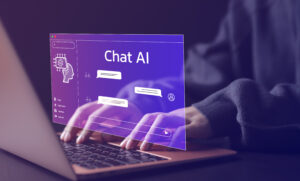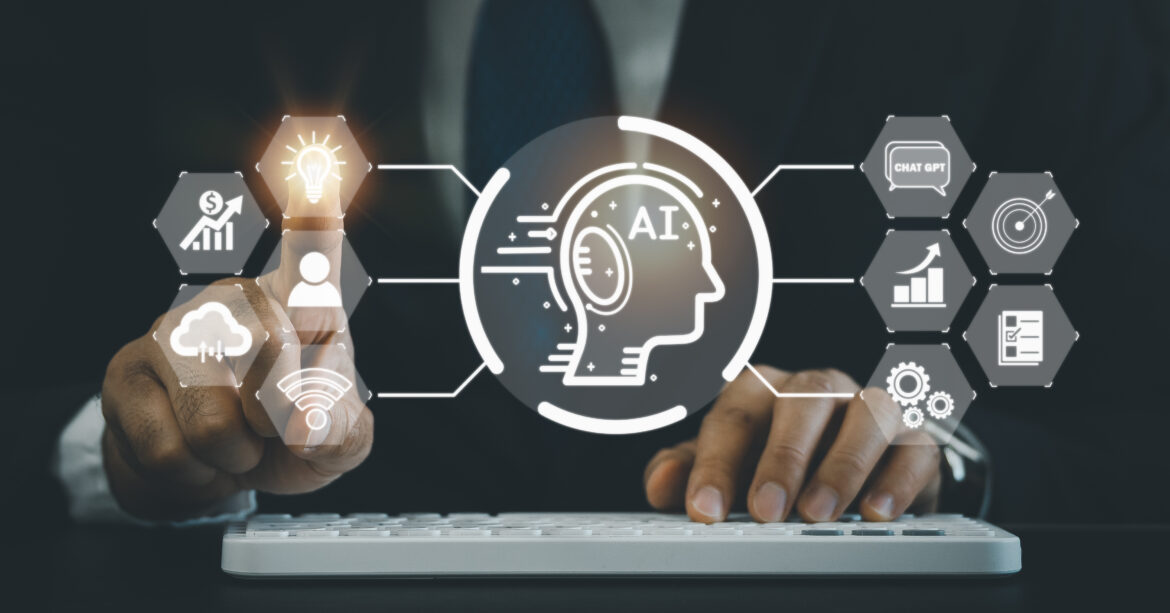Power of Artificial Intelligence in Marketing
Businesses use innovative technologies to be competitive in the constantly changing digital world of today. With the use of algorithms and data analytics, artificial intelligence (AI) is revolutionizing marketing by improving decision-making and delivering tailored experiences. Customer engagement has been transformed by the use of AI in marketing, which has grown from a novel concept to a driving force. The importance of AI resides in its capacity to innovate and streamline processes, allowing companies to develop targeted advertising and forge closer ties with their target market. The secret to seizing possibilities in the age of AI crucial is the convergence of strategy and technology.
Understanding Artificial Intelligence in Marketing
In the field of marketing, artificial intelligence (AI) is changing the game by transforming how companies perceive and communicate with their customers. We will examine the fundamental ideas that underpin artificial intelligence (AI) in marketing in this part.
Machine Learning Vs Artificial Intelligence
The difference between artificial intelligence (AI) and machine learning (ML) is fundamental to AI in marketing. Despite their frequent interchangeability, these phrases have distinct meanings. Algorithms used in machine learning allow computers to learn from experience and become better over time without the need for explicit programming. However, artificial intelligence is a more expansive term that includes machines that are capable of carrying out tasks that call for human intelligence. Comprehending this contradiction is essential to appreciating the subtleties of AI’s application in marketing tactics.
Neural Networks and Deep Learning
Neural Networks—which are modeled after the human brain—are essential to AI’s capacity to simulate human cognitive functions. These neural networks process enormous amounts of data as part of a process known as deep learning, a subset of machine learning, in order to identify patterns and come to wise judgments. This translates to improved predictive analytics, tailored content recommendations, and more precise customer targeting in marketing.
How AI Processes Data in Learning
The secret to AI’s success in marketing is its speedy processing and analysis of large datasets. Artificial intelligence algorithms are capable of quickly sorting through data to obtain insightful information on consumer behavior, market trends, and social media interactions. Marketers are better equipped to make educated decisions, optimize campaigns in real-time, and adjust plans to fit changing market conditions thanks to this data-derived strategy.
As the fundamentals of artificial intelligence in marketing are understood, it becomes clear that these innovations transcend beyond catchphrases and usher in a new era of accuracy and effectiveness in reaching target consumers.
Key Applications of AI Marketing
Personalized Marketing Campaigns:
AI is transforming targeted marketing initiatives by bringing innovative methods for more precise targeting and efficiency.
- AI-Powered Customer Segmentation: This technique analyses large databases to pinpoint particular customer segments, going beyond traditional demographics. This guarantees that marketing communications are customized to each group’s specific interests and preferences.
- Dynamic Content Generation: AI makes it easier to create dynamic content, which gives marketers the ability to create personalized content on a big scale. By adjusting marketing content in real-time according to the unique behaviors and preferences of each customer, machine learning algorithms increase engagement and improve the customer experience as a whole.
Predictive Analytics for Customer Behavior:
Predictive analytics powered by AI gives advertisers a crucial understanding of consumer behavior. Through historical data and instantaneous interactions, it forecasts purchasing habits, giving advertisers the ability to optimize the timing and content of their campaigns. Furthermore, AI examines consumer interactions to pinpoint elements that impact retention, allowing companies to proactively resolve problems and raise customer satisfaction levels.
Chatbots and Virtual Assistants:
Virtual assistants and AI chatbots are transforming customer service and support. They simplify assistance by automating repetitive processes, cutting response times, and freeing up human agents to handle more complicated issues. They also improve customer engagement by providing prompt, personalized responses.

AI-Powered Content Marketing
Content Creation with AI
Automated Content Generation: AI generates blog entries, articles, and social media updates automatically using sophisticated natural language processing (NLP) algorithms. This expedites manufacturing while preserving a unified brand voice.
Ensuring Content Relevance and Quality: Artificial intelligence (AI) improves the quality of content by analyzing user data, spotting trends, and customizing information to appeal to certain audiences. As a result, the content is current and extremely pertinent.
SEO Optimisation with AI
Research and Analysis of Trending Keywords: Artificial intelligence employs rapid data analysis to pinpoint popular keywords instantaneously, hence maintaining search engine optimization of content.
Content Ranking Strategies: Artificial intelligence (AI)-powered systems use more complex techniques to improve content ranking than just keyword optimization. These techniques range from assessing user involvement to projecting future search trends.
The Role of AI in Social Media Marketing
Thanks to its strengths in sentiment analysis and social media listening, artificial intelligence has a significant role in social media marketing. Businesses can evaluate the success of marketing campaigns, obtain insight into public opinion, and modify strategies in response to new trends by comprehending consumer feelings. Marketers are better equipped to remain ahead of the curve and make decisions that suit changing audience preferences when they have access to current social media data analysis.
Besides that, artificial intelligence is essential to automate social media posting. AI algorithms are excellent at scheduling postings at the best times to maximize visibility and boost engagement because of the large volume of content. Consistency in brand messaging across media is ensured by automated posting, strengthening brand identification, and preserving a unified online presence.
The Future of Artificial Intelligence in Marketing
Virtual reality (VR) and augmented reality (AR) in marketing are being improved by AI, which also makes personalized, interactive content possible. The use of AI in marketing efforts improves the effects of AR and VR, from virtual try-ons in the fashion industry to immersive product experiences.



